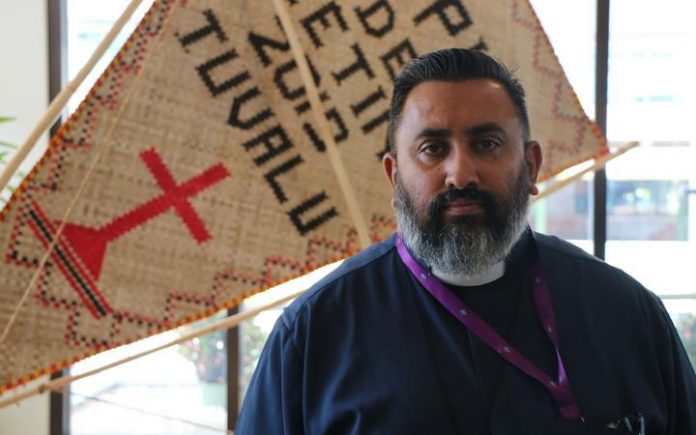Nuclear activists have hit out at Australia’s decision to acquire nuclear-powered submarines in partnership with the United States and United Kingdom.
It’s Australia’s most significant defence change in decades and replaces a $90 billion(US$66 billion) contract it had with France to build 12 diesel-powered submarines.
In a press conference announcing the deal, Australia’s Prime Minister Scott Morrison said it signals that “we have no doubt entered a new era”.
Pacific Network on Globalisation(PANG)campaigner Joey Tau said he was concerned for what impact this will have on Australia’s commitment to the Treaty of Rarotonga.
“It contradicts what it has continued to commit to the Pacific in terms of ensuring it is a nuclear free zone,” he said.
Both Australia and New Zealand are party to the Treaty which which establishes a nuclear weapons free zone in the South Pacific.
Morrison said nuclear powered submarines would not extend to nuclear weapons and that Australia will meet all its nuclear non-proliferation obligations.
New Zealand’s Prime Minister Jacinda Arden swiftly responded to the news banning the new submarines from entering its waters.
In the Pacific, the legacy of nuclear weapons testing is strong, with many people in Marshall Islanders still plagued by health and environmental issues after the US conducted weapons tests in the 1940s and 50s.
Marshall Islands National Nuclear Commission Chair Rhea Moss-Christian said when it comes to nuclear issues in the region, Pacific countries should be consulted.
“Not only the Marshall Islands but Kiribati and French Polynesia, we have nuclear legacies we are still contending with… for the benefit of regional partnership consultation is the way to go,” she said.
While most Pacific countries have remained quiet in response to the news, the Federated States of Micronesia said the news was “a surprise” but they have full trust in the United States and Australia “in the promotion and protection of a free and open Indo-Pacific”.
The general secretary of the Pacific Conference of Churches (PCC), James Bhagwan, said the move was a serious concern for a region still dealing with the fallout from nuclear testing.
“Three weeks ago, the current chair of Pacific Islands Forum, the prime minister of Fiji (Frank Bainimarama) reiterated that we want a blue Pacific that is nuclear free. It’s at the heart of Pacific regionalism.
“From the Sixties, from when the very first tests started in our region, this is something that government, civil society, churches have all been very adamant against, to keep our Pacific nuclear-free. We are still dealing with the fallout from nuclear testing.”
The pact comes as the Pacific Islands Forum continues to protest about Japan’s plans to dump treated nuclear waste water into the ocean from the Fukushima power plant, that was damaged in an earthquake and tsunami ten years ago.
The Federated States of Micronesia, a country with close ties to the US, was diplomatic in conveying how the pact caught it by surprise.
A spokesperson for the FSM government said it had “trust, faith and confidence” in the U.S and Australia in their promotion, and protection, of a Free & Open Indo-Pacific
“It can safely be assumed that the United States and Australia are making security decisions with the best interests of the Pacific in mind, because our vitality is their vitality. That said, this news is a surprise.
“Micronesia is confident this decision makes our country safer, but Micronesia also looks forward to learning more about how precisely that is the case.”
Meanwhile, France has reacted with disappointment over the pact, as it means Australia has dumped an earlier lucrative deal in which it was to have purchased French diesel-electric subs.
But rather than loss of business, Pacific Islands are more concerned about existential loss, having first hand experience of nuclear testing by French, American and British.
“The ocean impacts our life,” Rev Bhagwan said.
“We are the fish basket of the world. So if one submarine comes in and something goes wrong and the nuclear waste from that submarine gets into our ocean, that’s too much already.”
Rev Bhagwan questioned how the pact stacks up with Scott Morrison’s claims that Australia considers Pacific Islands countries as vuvale, or family.
“This is our Pacific way. Sometimes we don’t agree, but we always act in the best interests, we always come and support one another,” he said.
“This is not Australia acting in the best interests of the rest of its Pacific Vuvale.”
China has described the pact as being detrimental to regional peace and stability.
Relations between Beijing and Canberra are at an all-time low, and a spokesman for the Chinese government urged Australia to think carefully whether to treat China as a partner or a threat.
SOURCE: ABC/RNZ PACIFIC/PACNEWS














